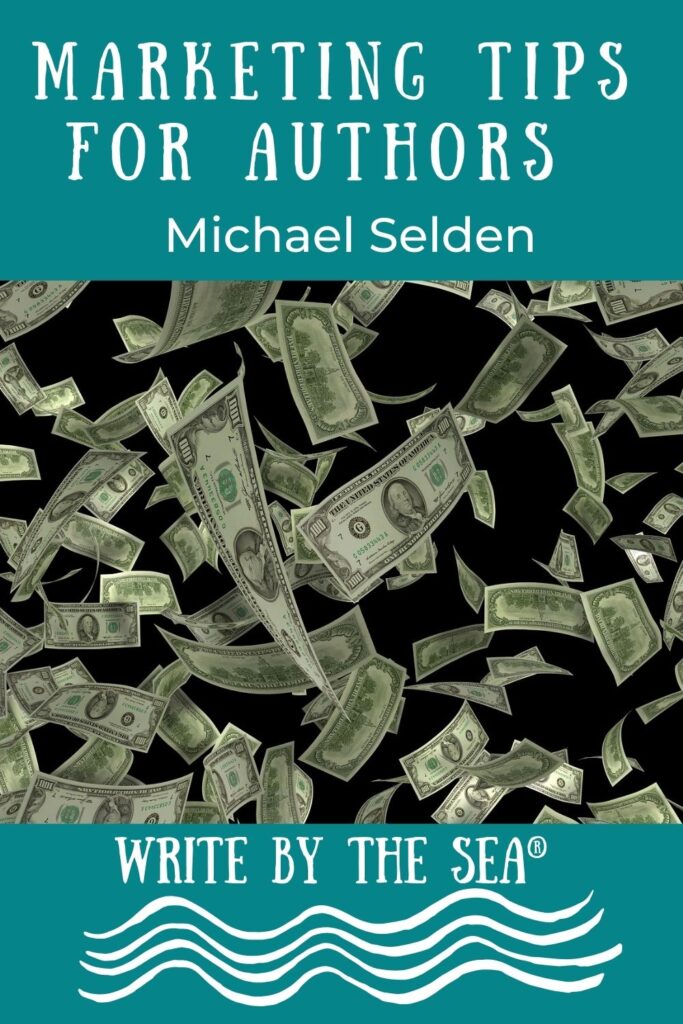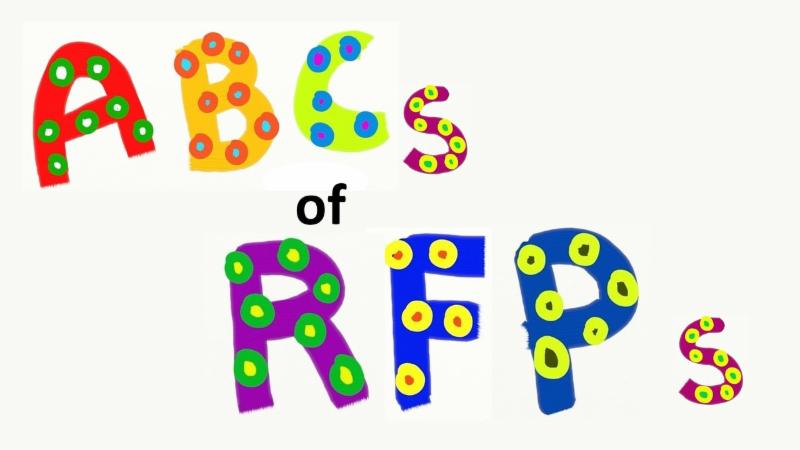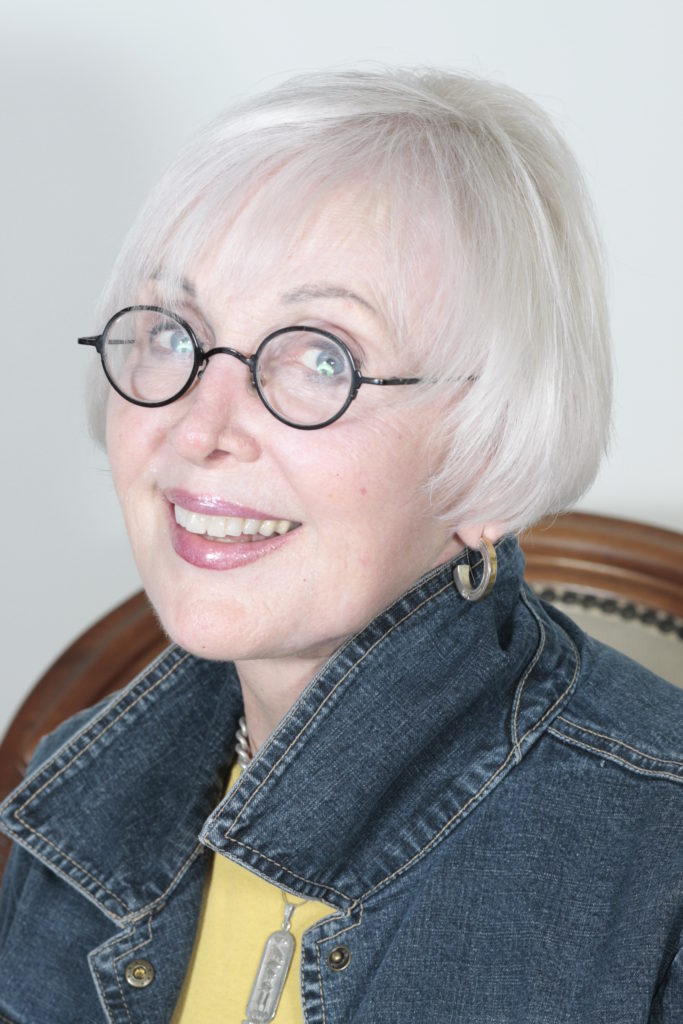a guest post from children’s author Melissa Abramovitz
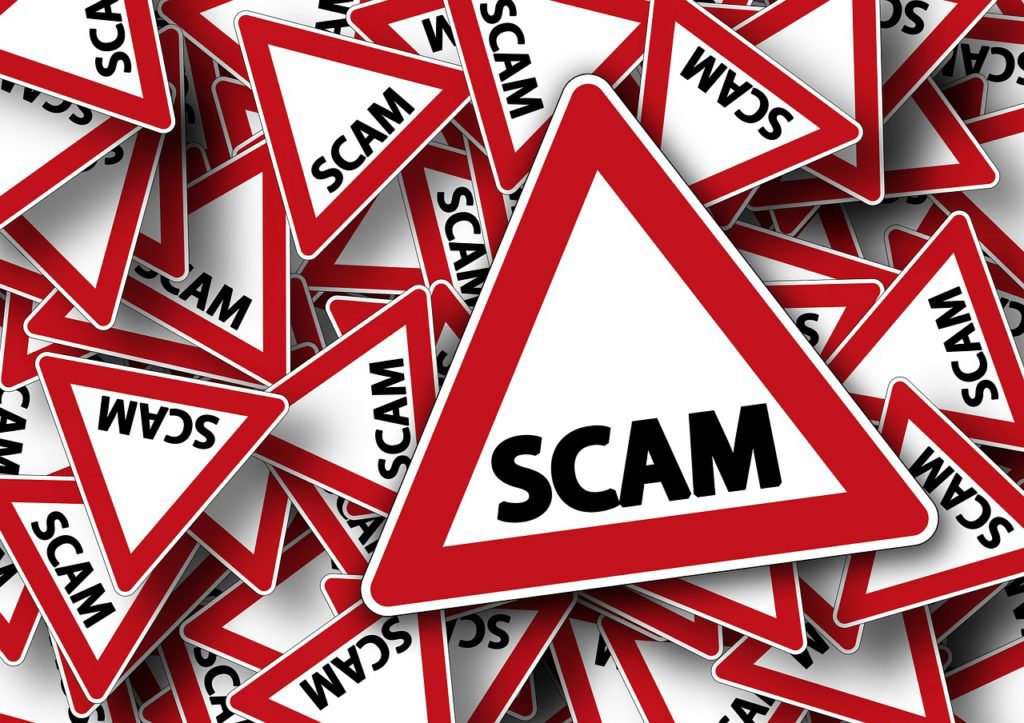
If you are an established or aspiring author or freelance writer, you may have been targeted by any of the many scams that specifically target writers.
Amazingly, I have only been targeted by two such scams during my 30 years as a professional writer.
I say “amazingly” because there are so many of these scams that lots of writers regularly find themselves being targeted.
Scam One
I must admit that the first time I was targeted by a scam, I fell for it, as many writers do, because the drive to be published is so strong.
The scam I fell for was an offer to publish a poem I submitted to a “prestigious” anthology.
The letter I received gushed about how wonderful the poem was and stated that I would surely want to see it published alongside other poets’ literary gems.
I think I wanted so much to believe that what I had written was special that I swallowed the offer, hook, line, and sinker.
Had I been a member of organizations like SCBWI or the Institute for Writers at that time, I probably would not have made myself a victim because I would have asked my fellow writers for advice.
But at that time I was a busy mom trying to launch a lucrative part-time freelance writing business, and I didn’t have time for writers’ organizations.
So I paid the required $25 fee for a copy of the anthology to ensure that my poem would be included.
And when it arrived, I realized that the thousands of “poets” whose work was published alongside mine had all been scammed into thinking that their poems actually had merit.
Some of them were REALLY awful.
As for mine, it was actually pretty good, and I later sold it to a legitimate magazine.
So I learned my lesson, and luckily only lost $25.
My mistake was not paying attention to two warning flags: the overly-exuberant gushing about my work and about the anthology; and the requirement that I send money to have my work published.
Scam Two
The second time I was targeted by a scam, which happened to be two weeks ago, I could have lost far more money than $25 had I not been immediately suspicious.
This scam involved a phone call out of the blue, from a woman who claimed to be associated with a major New York author promotion firm.
The woman said she was calling because she read one of my picture books and loved it, so her company wanted to help me promote it.
She offered to make a five-minute author video and a book trailer for only $1600.
Well, after I finished laughing, I told her that I already have a book trailer for the book, and I said that if I wanted an author video, one of my children could make it for me for free.
Then I told her that she should be ashamed of herself for preying on innocent writers.
The clues that led me to conclude that this was a scam were:
1) The woman said her name was a very common American name, yet she spoke with a very pronounced foreign accent and obviously had no knowledge of English grammar,
2) I googled the name of the company she claimed to be associated with and could not find out anything about it,
3) $1600 for a book trailer and author video was a ridiculous price.
And had I sent the money, I am sure that no book trailer and author video would have materialized.
I was sort of surprised to be the recipient of this scam offer because these companies often target aspiring authors, knowing that many will bite at anything that promises to help them achieve their goal of seeing a book in print without having to self-publish.
But then I realized that even long-time authors can also be receptive to offers that promise to increase book sales.
That’s why it’s so important for all of us to be careful.
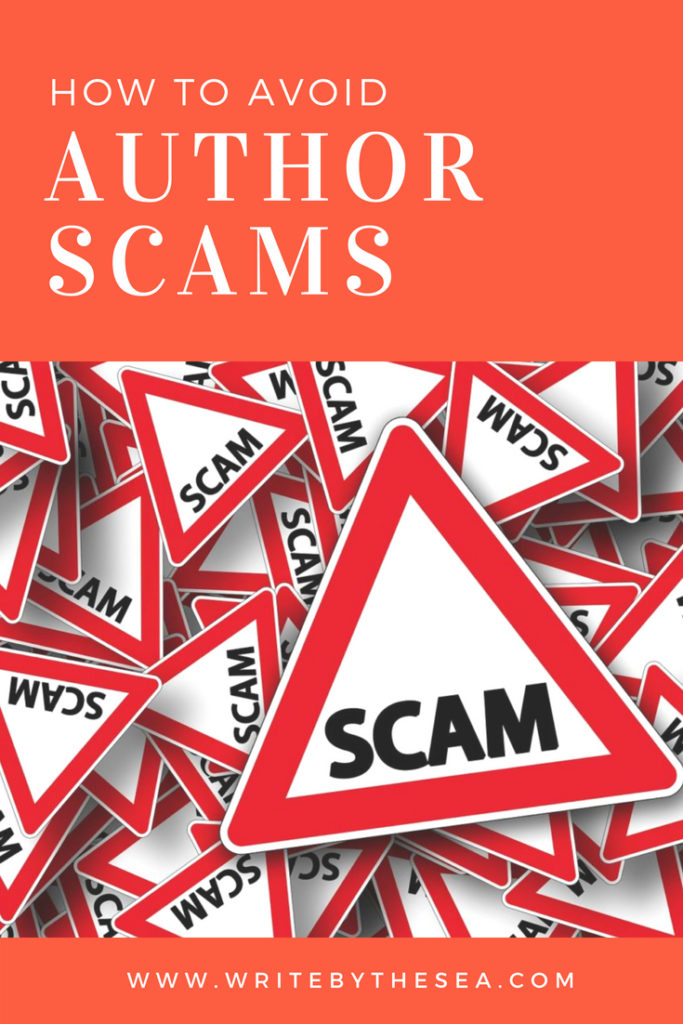
What To Look For
Whether you are pre-published or multi-published, here are some tips to help you recognize and keep yourself from falling for a scam.
- Never respond to an unsolicited email, phone call, or other solicitation from a so-called agent who wants to represent your book to publishers. Genuine agents are way too busy plowing through the thousands of queries they receive and do not have time to find or solicit clients unless they receive a personal recommendation from one of the writers they represent.
- An offer from an editorial service that guarantees that your book will be a bestseller after they edit it is sure to be a scam. No one can guarantee anything of the sort. If it sounds too good to be true, it’s a scam! Many of these so-called editors target writers’ organizations or critique groups and send solicitations to everyone in the group.
- If you receive an email stating that the individual represents a well-known publisher and that you should contact him/her immediately because the publisher is looking for the next bestselling author, delete it. Another example of “too good to be true.”
- Some vanity publishers (those that publish anything for a fee – usually a large fee in the $5000 to $20,000 range) – may masquerade as self-publishing platforms with extra perks. Don’t fall for them – if you want to self-publish, do your homework and find out about legitimate self-publishing platforms like Lulu or CreateSpace. Some vanity publishers may also pretend to be traditional publishers. After an author sends them a manuscript, they often claim that they want to publish the book, but when it comes time to sign a contract, they then raise the issue of a few “expenses” that must be covered before publication. Legitimate traditional publishers cover all expenses related to editing, designing, and publishing their books. They make their money from selling books, not gouging their authors.
- Some of these scamsters have very convincing websites and send out very convincing letters to try to snare hungry writers. So be sure to check with other writers or search for the company/individual on the Editors and Preditors or Writer Beware websites. These sites do a great job of alerting writers to new/and/or ongoing scams.
About Melissa Abramovitz
Melissa Abramovitz is an award-winning author/freelance writer who specializes in writing educational nonfiction books and magazine articles for all age groups, from preschoolers through adults.
She has published hundreds of magazine articles and more than 50 educational books for children and teenagers.
She also does freelance editing and critiquing and writes short stories, poems, and picture books, and is the author of the acclaimed book for writers, A Treasure Trove of Opportunity: How to Write and Sell Articles for Children’s Magazines.
Melissa graduated summa cum laude from the University of California, San Diego with a degree in psychology. She is also a graduate of The Institute of Children’s Literature and currently a member of the SCBWI.
Visit her website at www.melissaabramovitz.com


